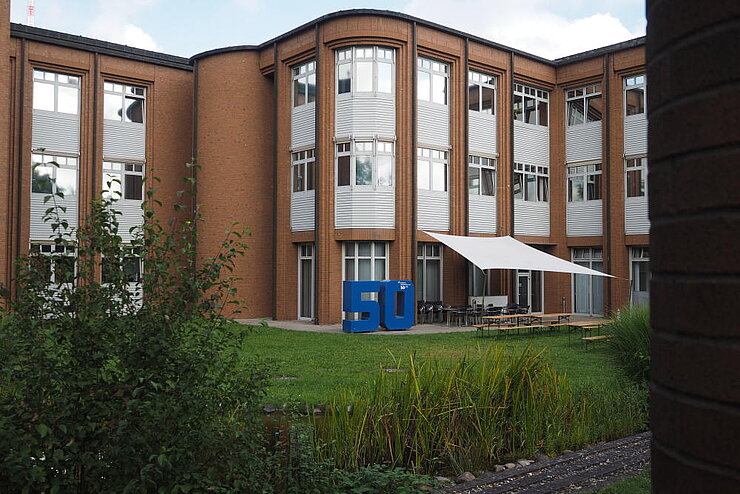Translation – bridging the gap between lab bench and clinic

Translation in infection research has many faces but only ever one goal: to close the existing gap between basic science research and clinical application
This gap was originally created by centuries-old scientific research patterns. On the one hand, you have the natural sciences whose focus has always been the study of natural phenomena. On the other hand, there is medicine whose concern has been to cure patients of diseases without taking too strong of an interest in extraneous scientific detail. Due to the rapid scientific progress of recent years, both of these fields of science have gradually begun to approach and even benefit each other, ultimately evolving into the common denominator known today as health research. As a result, clinicians have begun to recognize the need for a strong focus on scientific foundations to help them troubleshoot clinical problems while bench scientists have come to realize the clinical setting’s potential for raising new questions in basic science research.
The Helmholtz Centre for Infection Research (HZI) is involved in different kinds of translational activities. Behind these activities lurks the central question: How exactly is HZI – which itself does not run any hospital – able to contribute to bridging the gap between the basic sciences and the clinical setting? In fact, our strategy is twofold – “applied translation“ in the form of a collaborative effort with other research institutes and clinics; and “scientific translation,“ a tenet reflected in the centre’s scientific focus.

Applied translation
At this time, HZI is firmly entrenched in three different translation networks. The end goal of all of these collaboratives is to create a research chain of sorts, which leads from basic science findings to preventative measures and therapies to ultimately benefit the patient.
TWINCORE Centre for Experimental and Clinical Infection Research GmbH
TWINCORE was established jointly by HZI and the Hannover Medical School (MHH). At TWINCORE, basic scientists and physicians are working hand in hand to find answers to many pressing scientific questions. The focus is on direct networking between scientists from both camps working together on a number of projects.
Translation Alliance in Lower Saxony (TRAIN)
TRAIN is a conglomerate of different biomedical research institutes in the German state of Lower Saxony, which supports the necessary infrastructure for efficient translational research, systematically expands it, and actively promotes a common dialog. As such, the TRAIN initiative has helped found the new Hannover-based Clinical Research Center (CRC) currently under development, whose mission will be to open up new venues for translational research.
German Centre for Infection Research (DZIF)
The DZIF is a collaborative of different German universities, hospitals, and research institutes with special competencies in the field of infection research and the mission of gleaning insights into pathogens and using these insights to develop approaches for new therapies, drugs, vaccines, and immunization protocols. Translation as a way of improving public health is thus of central significance at DZIF. By pooling individual expertise from the various DZIF sites, far-reaching synergistic effects are projected, which in turn will help speed along the process of extracting useful information from basic science research findings.
Institute for Biomedical Translation (IBT) Lower Saxony
The IBT is an incubator for biomedical innovation and promotes future-oriented scientific ideas. The aim is to accelerate the transfer of cutting-edge research in the life sciences in Lower Saxony and to take it out into the world in the form of start-ups and entrepreneurial ideas. The founding institutions of the IBT are the Hannover Medical School (MHH), the University Medical Center Göttingen (UMG) and the Helmholtz Centre for Infection Research (HZI) in Braunschweig.
Scientific translation
The scientific basis for HZI’s approach to translation lies with the centre’s strategic research focus. At HZI, we emphasize basic science research on clinically relevant pathogens. HZI’s ongoing active recruitment of world-class scientists continually adds to this focus.
Work on clinically important pathogens promotes a direct exchange between clinicians and basic science researchers – all the way to basic science research being conducted on samples obtained from the hospital setting.
Yet another manifestation of HZI’s strong translational focus is our commitment to epidemiological research. Results from this research help HZI scientists understand which diseases have actual societal relevance – even in those instances where a disease may only be leading a niche existence. In addition, epidemiologists study the ways in which pathogens spread within a population. Infection research benefits from this work mainly in that it helps identify targets for potential effective therapies to curtail or halt the spread of a disease.
In the end, to really seal the gap between research and application, therapeutic approaches have to be developed through the drug stage – a challenge that one single research institute cannot afford to take on alone. At this stage, collaboration with industry becomes indispensable. In addition to numerous direct partnerships with the pharmaceutical industry, HZI maintains a close-knit collaboration with VaccineProjectManagement GmbH whose special expertise is use-of-potential drug project analysis and supervision through the clinical study stage.
(jsg)



